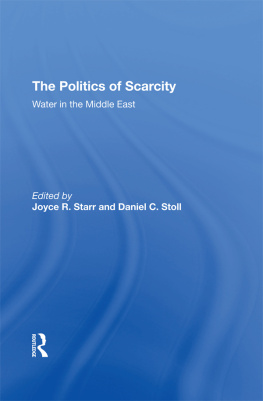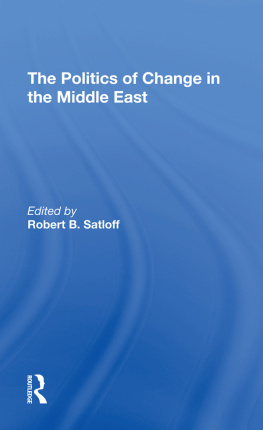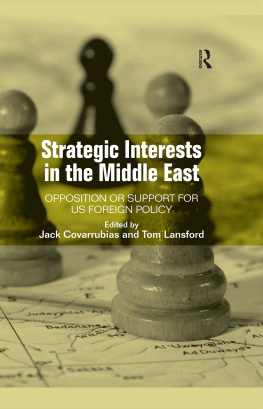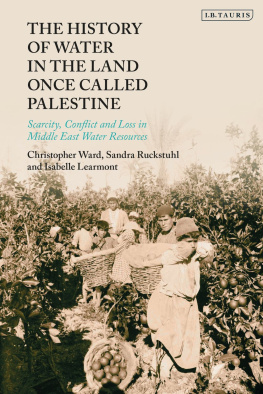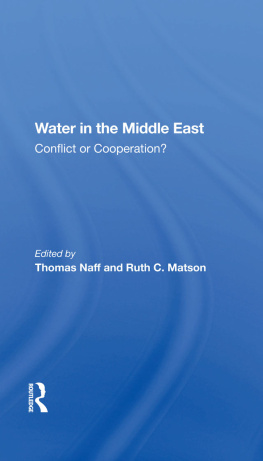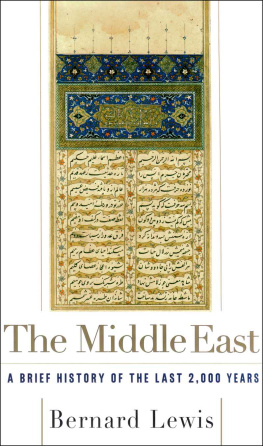The Politics of Scarcity
Water in the Middle East
Published in cooperation with the Center for Strategic and International Studies, Washington, D.C.
First published 1988 by Westview Press
Published 2019 by Routledge
52 Vanderbilt Avenue, New York, NY 10017
2 Park Square, Milton Park, Abingdon, Oxon OX14 4RN
Routledge is an imprint of the Taylor & Francis Group, an informa business
Copyright 1988 by the Center for Strategic and International Studies
All rights reserved. No part of this book may be reprinted or reproduced or utilised in any form or by any electronic, mechanical, or other means, now known or hereafter invented, including photocopying and recording, or in any information storage or retrieval system, without permission in writing from the publishers.
Notice:
Product or corporate names may be trademarks or registered trademarks, and are used only for identification and explanation without intent to infringe
Library of Congress Cataloging-in-Publication Data
The Politics of scarcity : water in the Middle East / edited by Joyce
R. Starr and Daniel C. Stoll.
p. cm. -- (Westview special studies on the Middle East)
Bibliography: p.
Includes index.
1. Water supply--Middle East. 2. Water supply--Political aspects-
Middle East. 3. Water resources development--Middle East.
4. United States--Relations--Middle East. 5. Middle East-
Relations--United States. 6. Middle East--Strategic aspects.
I. Starr, Joyce. II. Stoll, Daniel C. III. Series.
HD1698.M53P65 1987
333.9100956--dc19
87-29548
CIP
ISBN 13: 978-0-367-29521-9 (hbk)
Contents
, Amos A. Jordan
, Joyce R. Starr and Daniel C. Stoll
, Ewan W. Anderson
, Raj Krishna
, Selig A. Taubenblatt
, Leon Awerbuch
, Donald E. Osborn, Raymond Sierka, and Medhat Latif
, Carl N. Hodges, Wayne L. Collins, and James J. Riley
, Cem Duna
, Joyce R. Starr and Daniel C. Stoll
, Joyce R. Starr and Daniel C. Stoll
As a policy studies institute, the Center for Strategic and International Studies conducts research that is both timely and anticipatory.
The water policy research project, initiated by Joyce R. Starr and Daniel C. Stoll of our Near East Studies Program, is a prime example of this focus. Their effort, a major project entitled U.S. Foreign Policy on Water Resources in the Middle East, concentrated on the impact that emerging water problems in the Middle East will have on U.S. strategic interests in the region. In the process, they brought together an extraordinarily varied body of water experts, representing the academic, governmental, and business communities in both the United States and Middle East.
This book is the culmination of more than fifteen months of research, interviews, and conferences. Given the scope and depth of its treatment of pertinent issues, it should become an invaluable study for students of the Middle East as well as for seasoned analysts.
Amos A. Jordan
President Emeritus,
Holder of the Henry A. Kissinger chair in National Security Policy, and vice chairman of the Board of Trustees Center for Strategic and International Studies
The Middle East stands at the precipice of another major natural resource crisis. Before the twenty-first century, the struggle over limited and threatened water resources could sunder already fragile ties among regional states and lead to unprecedented upheaval within the area.
In July 1986, the Near East Studies Program of the Center for Strategic and International Studies (CSIS) launched a fifteen-month research effort on the U.S. government response to the unfolding crisis, U.S. Foreign Policy on Water Resources in the Middle East. Our goal was to recommend a strategy for the future that could protect and reinforce U.S. interests.
Our intended audience was the U.S. policymaking community, specifically those agencies and divisions in the executive branch involved in water-related diplomacy, development, and data collection. The study focused on the regions three major river basins: the Jordan, the Tigris/Euphrates, and the Nile. We concentrated on those countries or areas in the region facing severe water shortages and declining levels of water quality: Egypt, Jordan, Iraq, Israel, the West Bank and Gaza Strip, Syria, and Turkey.
The perspective of the Middle East players themselves was essential, and thus experts from the region were brought in to critique our ideas as they took shape. A steering committee of U.S. experts from wide-ranging disciplines provided intellectual direction.
As the project unfolded, officials from U.S. government agencies participated, generously sharing their time and views. We were impressed by the dedication and professionalism of these experts. Although increasingly restricted by reduced funding and constraints within the government, their skill and far-sightedness have shaped programs that stand as a source of pride for our nation.
There was consensus among the participating experts that diplomatic momentum should be encouraged wherever possible. The group stressed, however, that diplomacy per se is a long-range, laborious, and usually tortuous process. By contrast, technical advancesalthough not a substitute for diplomacy--can result in discernible, near-term gains.
U.S. government and private sector representatives participating in this effort recommended that the U.S. government concentrate on four policy areas:
- * Development of advanced water technologies
- * Encouragement of more efficient resources management and conservation strategies
- * Improvement in coordination among U.S. water agencies
- * Attention to long-range research and planning
These goals could be met through structural and programmatic changes at minimal cost and with high returns. Congressional awareness of the looming Middle East water resources crisis and support for a strengthened U.S. government position is essential.
Specific recommendations for action include:
- The creation of a coordinating body within the U.S. government for all Middle East water research and development programs. This interagency group would serve as a data clearinghouse and institutional memory for the governments work on water issues.
- The creation of a U.S./Middle East water program to encourage the development of advanced water technologies. Topics of study would cover a wide range of technical issues, including: horticulture, genetic research and development, pollution control, water reuse strategies, and the application of solar energy to water technologies. Special emphasis on research related to desert regions would have applications for both the Middle East and the U.S. Southwest.
At present, the United States is the only country in the world capable of exerting leadership on water resource development and cooperation in the Middle East. We have the capability to forge ahead. What is required at this juncture is the vision to persevere.
Joyce R. Starr
Director
Daniel C. Stoll
Research Associate
Near East Studies Program Center for Strategic and International Studies
The production of this volume has left us deeply indebted to many friends who served as guides, counselors, and mentors.

